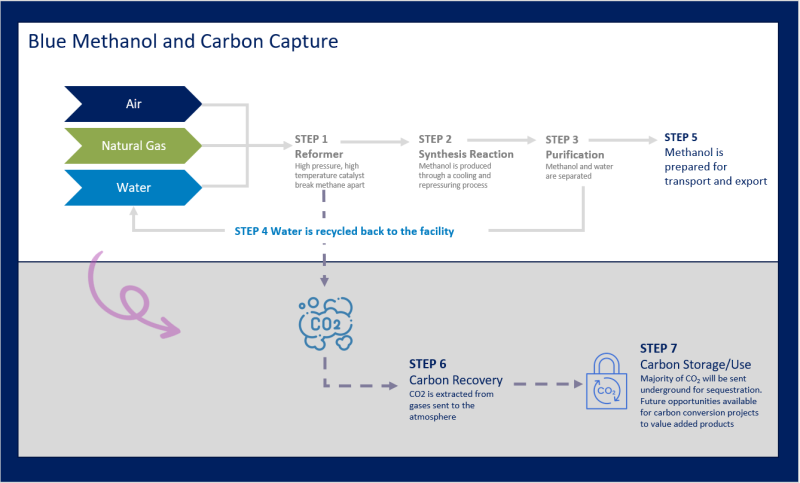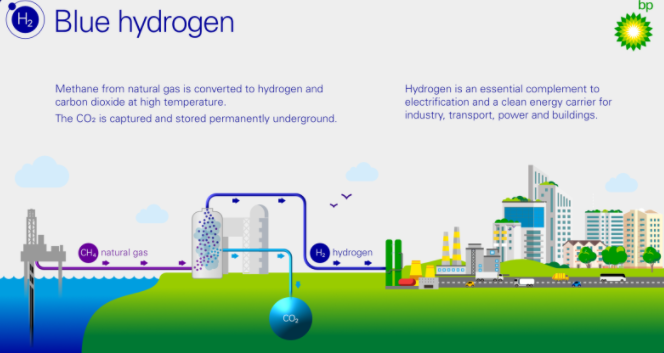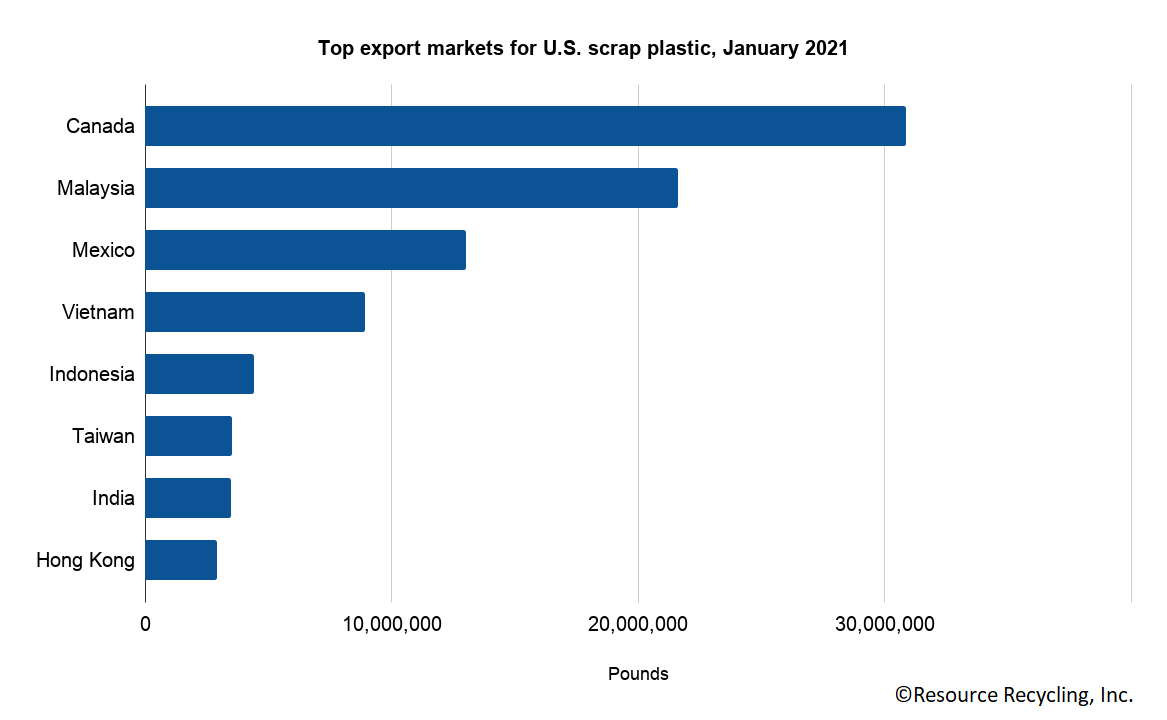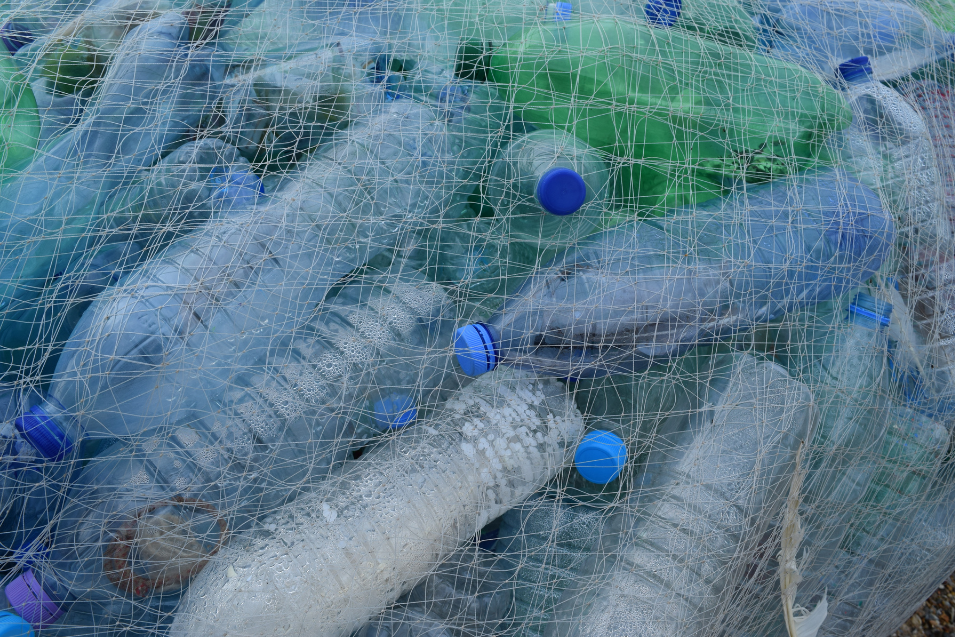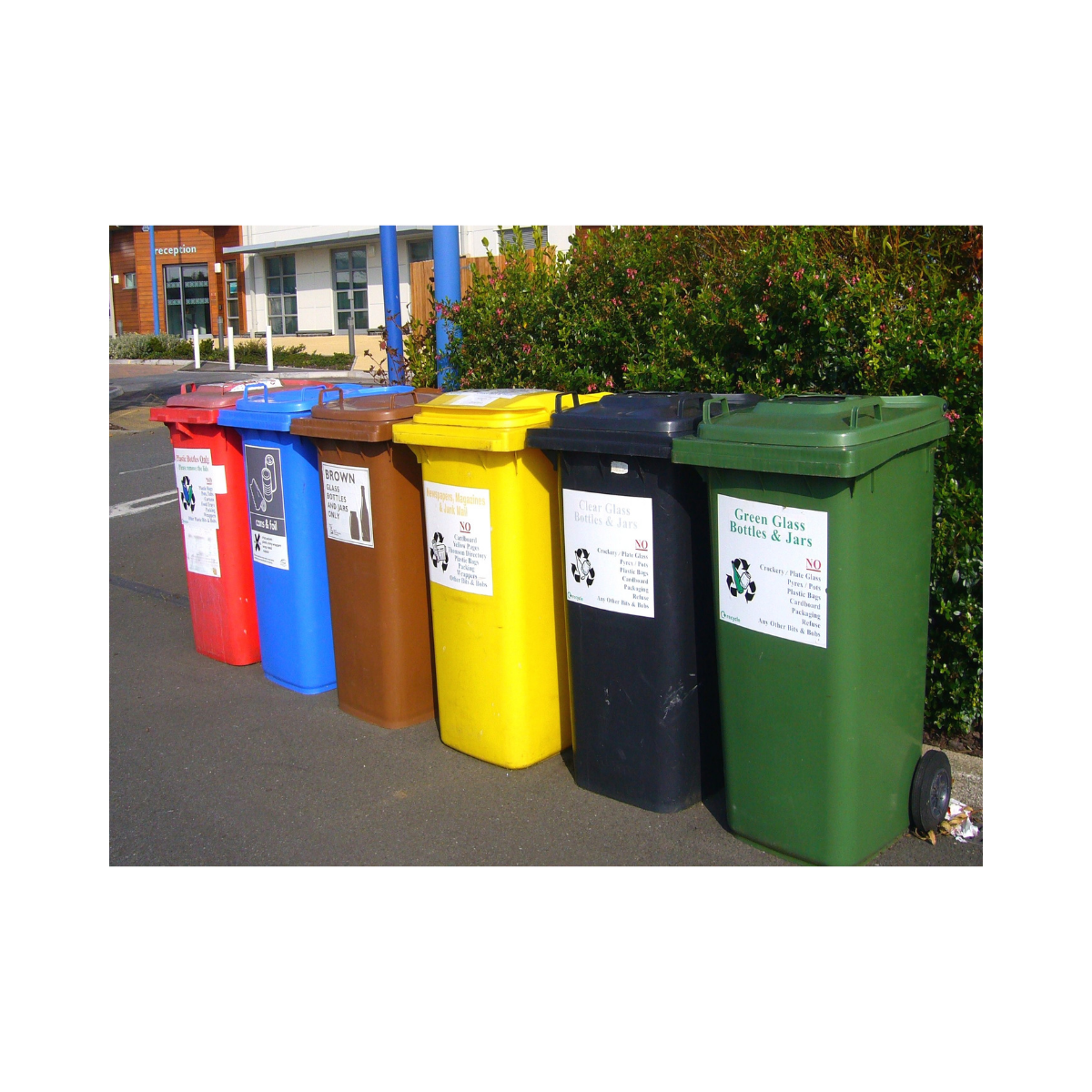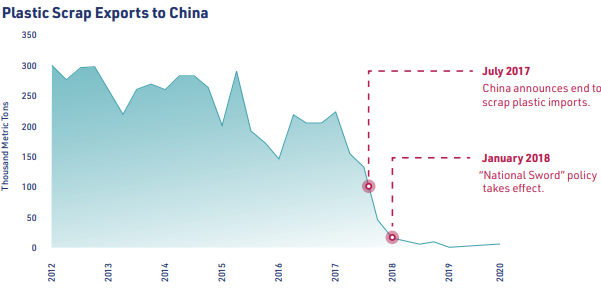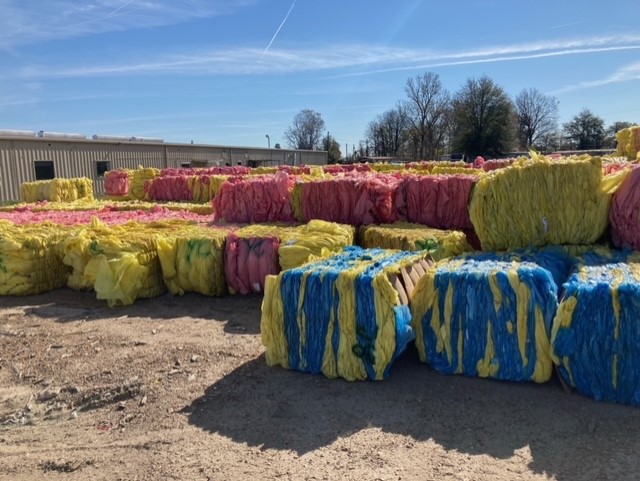In yesterday’s ESG and Climate report, we focused on the possibility of gaining a competitive edge by focusing on the most likely outcome for each climate and sustainability challenge and moving in that direction quickly, rather than waiting for regulations or incentive schemes to develop to make the financial decision more palatable. This is more important when other countries already have incentive schemes that are encouraging behavior that could create a competitive edge or where companies are acting unilaterally. There are a couple of interesting examples below:
Will Being Clean Become Competitive?
Mar 25, 2021 11:46:34 AM / by Graham Copley posted in ESG, Recycling, Sustainability
More Recycling Semantics & Fresh CCS Initiatives
Mar 19, 2021 10:41:57 AM / by Graham Copley posted in ESG, Recycling
We have to again take issue with the phrase “advanced recycling” as we believe that it is neither advanced nor is it really recycling. Most companies are using the phrase to describe the process of taking a product that has had a 60-90 cents per pound value in use and breaking it back down to a liquid hydrocarbon that is worth less than 20 cents a pound. When this is then reused as a chemical feedstock, the maximum conversion to polymers is 50% with the rest going to other chemicals and other fuels. Because of losses in the initial stage of the process you are going to get at best a 40% rate of recycling back into the original polymer uses. This is a convenient solution for the major polymer producers as it allows them to maintain rates on their virgin polymer plants while claiming to participate in the recycling (closed-loop) process – even if the loop is far from closed.
Plastic Waste Challenges Revisited
Mar 11, 2021 11:20:12 AM / by Graham Copley posted in Recycling, Polymers, Plastic Waste
We are back on plastic waste today, following the IHS World Petrochemical Conference post that collaboration is key to evolving the circular plastics economy, reminding us what the largest challenge is regarding creating a circular plastics economy. Our work on trying to find a waste solution for a specific source material that we have discussed in prior reports has shown us firsthand how difficult it is to get the parties that should be interested in collaborating to talk to each other. While some see the waste problem as an urgent need, generally those that have the waste and are looking for a solution, others that are needed to complete the chain, have the issue far down their list of priorities. Making matters worse is that the margin in the collection, sorting, and then finding the most appropriate home for different streams of waste, is very small unless you are very efficient and/or unless you know that you are getting a disproportionate amount of material that can be upgraded (mechanically recycled) versus downgraded (chemically recycled).
An added complication is that when China was taking waste, there was a payment for the mixed plastic and consequently, many who were involved in that trade are used to being paid for the waste – and have higher expectations of the margins to be shared than are likely available – in other words they want more for the plastic than it is worth locally, especially in a downgrading chemical recycling process.
Source: ResourceRecycling, US Census Bureau
In the chart above, it is likely that the prices being paid for the plastics that are being exported are very low and we have seen instances of local municipalities paying to have waste removes as it is less expensive than landfill – this is a mindset that is needed broadly to generate solutions for waste disposal and the optimal use of the various plastic waste streams. IHS is spot on with its call for greater collaboration, but that collaboration is not at a national level as the waste polymer is spread nationally and internationally and is a problem for local municipalities, counties and if they are coordinated, States, within the US. It is not one instance of collaboration and investment that is needed - it is thousands and while some solution investments may be common, many may not be. This one of the reasons why we believe that the chemical recycling ambitions of the chemical majors are wildly optimistic, given that outside of very large urban centers, they will need to work with hundreds of distinct local groups to get more material into the system. There is much more on plastic waste and recycling options in our March 3rd ESG and Climate Piece - Trash, or Treasure: Waste Plastic Challenges and Opportunities
New Bottlenecks in Recycling
Mar 9, 2021 10:48:23 AM / by Graham Copley posted in ESG, Recycling
Today we focus on recycling and the news that a significant recycler of PET (CarbonLite) has filed for Chapter 11 protection. This is another indication that there is not much money to be made in recycling and it is a little shocking given that the company was focused on PET, which has some of the better recycling rates in the country. The company blames the Bankruptcy on COVID and it is clear that the timing of some major capital commitments related to expansions that were delayed by COVID are part of the problem. While the restructuring is unlikely to see the company liquidated, it appears that the company owes money to customers (pre-payments for the product or for capacity rights – most likely). There could be worse timing for CarbonLite – while the company will look to restructure the debt that it has with customers, it is unlikely that any of them want to run a recycling business and they all need the rPET to meet customer commitments. The negative is that it shines another light on the marginal nature of recycling, even for the better products, and may provide a further incentive for packagers to look to other materials or renewable-based sources
Plastics Recycling – Slow Progress: Not Much Quality Product & An Idea
Feb 26, 2021 12:06:11 PM / by Graham Copley posted in ESG, Recycling
Plastics Recycling – Slow Progress – Not Much Quality Product and An Idea
As we noted a couple of days ago, the significant increase in recycled polymer prices in recent weeks has not been driven by altruistic behavioral change, but by a need to find cheaper polymer as virgin resin prices have shot up. What will likely be a very quick conclusion is that there is not that much high-quality recycled polymer to go around. The volumes available from the multiple recycling programs that we highlight on almost a daily basis are small and will have minimal impact on the overall market, while possibly having an incremental impact on average pricing for those that can use the materials. A radical rethink is needed around recycling and it involves more than just some low-risk JV’s from the major producers, such as the one highlighted in our daily today between Agilyx and Exxon. Everyone knows that the major constraints, especially in the US, are around collection and separation, with a general lack of coordination between plastics consumers, waste companies, and municipalities. We see some local initiatives that appear to be moving in the right direction, but nothing moving fast enough to make a meaningful impact. Waste is likely to take a back seat to emissions in terms of Government-led initiatives in the US for a while in our view.
We have a potential business model for a more holistic approach to recycling and we are in discussion with a couple of potential partners to create a business plan, initially for a first investment, but around a design that could easily be repeated. Please reach out to us if you would like to learn more.
The Complexity of Recycling & CO2 Footprints
Feb 25, 2021 11:57:09 AM / by Graham Copley posted in ESG, Carbon Capture, Recycling
Two things today – first, we find continued calls for “advanced recycling” technologies and systems. A couple of the primary issues are not that advanced, collection, transportation, and cleaning, but all require breakthroughs, which in some instances may be local and not economically replicated elsewhere. The strict FDA demands on what types of recycled polymer can be used in food packaging applications exclude many recycled material streams. This is especially true with many of those who have already had food contact applications. Advances in cleaning might meet FDA standards and increase the available pool of useable polymers. The challenge here is that a cleaning process likely works best once the polymer has reground into standard shapes – which would need to come after any AI-enhanced sorting innovation. That would lead to cleaning more than one stream and keeping the polymers segregated – which would cause inefficiencies. Right now, “advanced recycling” technologies appear to be a euphemism for disposal. Anything that can deal with a mixed and not necessarily clean stream will be breaking the polymers down chemically to form some fuel or feedstock for more plastics – it is a significant step down in value and maybe the word “advanced” is misplaced.
Biofuels and the Materials Opportunity
Feb 24, 2021 11:27:50 AM / by Graham Copley posted in ESG, Recycling, Biofuels
We should focus on the Gevo headline today (Gevo and HCS Group Sign Strategic Agreement to Produce Renewable Low-Carbon Chemicals and Sustainable Aviation Fuel in Europe) as it indicates further acceptance of the technology as well as the opportunities in aviation and other fuels. It is also interesting to note that HCS Group, which has signed the JV with Gevo, mentions low-carbon chemicals in the headline.
Waste Plastic Prices Rise (But Not For The Right Reasons)
Feb 23, 2021 11:39:33 AM / by Graham Copley posted in ESG, Hydrogen, Recycling
There is a lot of news about plastic waste/scrap prices rising this week. History suggests that we should not extrapolate this into any medium to longer-term conclusions about the longer-term fortunes of recycling. Every time base polymer prices rise above a certain point, companies using plastics with less rigorous product quality requirements start looking for anything they can get their hands on – especially if the supply of virgin resins is physically limited. This was the case when oil prices peaked in 2013/2014 and it was also the case in the early 1980s. The difference today is that a prolonged shortage may help to kick-start some recycling initiatives where consumers find that they can use the lower quality product effectively and choose not to switch back as virgin polymer availability rises because of the PR element of what they have switched to. That said, if virgin prices collapse later in the year, there would almost certainly be some switching back. We have been advocates for some time of a more holistic approach to recycling in the US (and globally) where buyers who want recycled content to accept that they must pay prices based on costs rather than a virgin polymer price marker. Without this, we will not drive the necessary investment to create sustainable and efficient models for recycling that can compete at lower prices.
The Need for Everything
Feb 19, 2021 12:22:53 PM / by Graham Copley posted in ESG, Chemicals, Recycling
We highlight a couple of themes today – one of which is the need for everything. One of the striking conclusions from Shell’s presentation last week was that the company is not putting its eggs in just one or two baskets, it is investing in almost everything – solar, hydrogen, biofuels, natural gas, physical carbon capture, and natural carbon capture through tree planting programs.
Global Coordination - Carbon
Feb 19, 2021 12:22:44 PM / by Graham Copley posted in ESG, Chemicals, Carbon Capture, Recycling
One of the subjects we covered in yesterday’s ESG and Climate piece was the need for global coordination around the price of Carbon. We used Canada as an example of how lack of coordination can potentially drive unintended consequences. Canada’s high carbon tax does not apply to products that are exported – which may drive an increase in exports and an increase in imports to exploit the loophole. One of the headlines in today's report talks about the need for Europe to impose a carbon-related tax on imports, to level the playing field for those paying the carbon tax in Europe versus importers (maybe from Canada) that are not paying the tax. We either need a system of global cooperation where everyone pays the carbon penalty equally, domestic users and exporters, or we need carbon-based import taxes that are equivalent, again on a globally consistent basis. The odds of this level of coordination happening are quite low, in our view and almost any legislation will have exceptions and loopholes that will allow traders to exploit unintended arbitrages. This is probably one of the hardest problems to solve as global Governments attempt to form a coordinated approach to climate-related initiatives.


